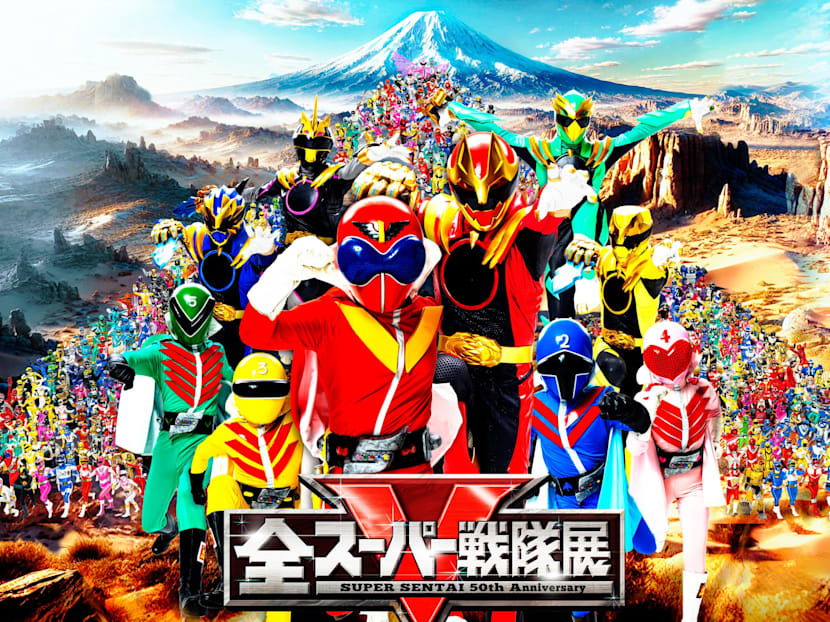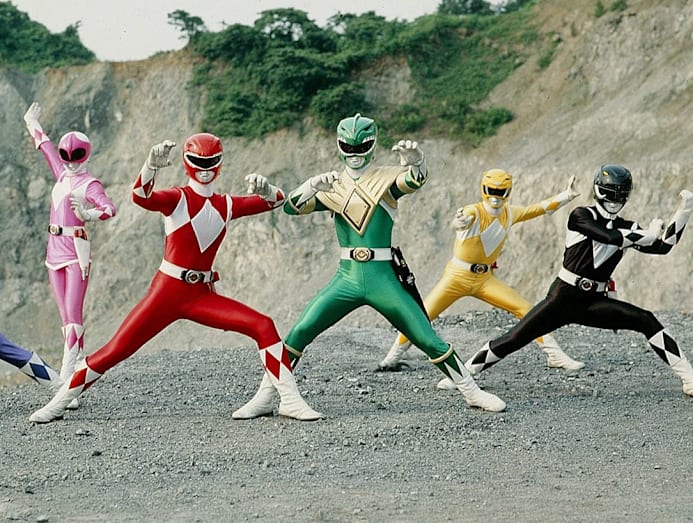Super Sentai, the Japanese TV franchise that inspired Power Rangers, reportedly ending after 50 years
Numerous Japanese news outlets reported on Thursday (Oct 30) that the popular superhero franchise, Super Sentai, will end with its current series, Number One Sentai Gozyuger.

Super Sentai heroes spanning 50 years. (Photo: Super Sentai 50th Anniversary)

This audio is generated by an AI tool.
The long-running Japanese superhero franchise Super Sentai will reportedly end with its currently-airing series, Number One Sentai Gozyuger, according to various media outlets on Thursday (Oct 30). The Super Sentai series first launched in 1975 with Himitsu Sentai Gorenger and has been running continuously for 50 years.
Over the years, the format of the series has remained mostly the same: A team of colour-coded heroes band together to battle against evil, with each year focusing on a different team, aka a sentai.
International audiences would be most familiar with the 16th Super Sentai series, Kyoryu Sentai Zyuranger, which served as the basis of the 1993 American children's show Mighty Morphin Power Rangers – a show that would go on to become a pop culture phenomenon.

According to news reports, citing sources close to production, the reason Super Sentai is ending is that "revenues from events, merchandise and film adaptations did not cover production costs".
As of writing, the producers of the Super Sentai series have neither confirmed nor denied the reports, with a spokesperson from TV Asahi – the network that airs Super Sentai – saying that it "will not comment on future programming plans".
Nonetheless, reports of Super Sentai's potential demise have sent shockwaves throughout the Japanese entertainment industry, with many fans and celebrities, including former Super Sentai actors, expressing their shock and dismay at the news.
Award-winning actress-model Keiko Kitagawa reposted the news on her X page and wrote: "Despair".
In a series of X posts, Yuma Nishi, a member of the Japanese idol group NMB48, appeared distraught by the news, writing: "Wait a minute, my whole life…Even if I wake up in the morning, the Super Sentai series is really ending?"
Actor Yasuhisa Furuhara, who starred in the 2008 Super Sentai series Engine Sentai Go-onger, had a more positive take, writing: "It's been 50 years. I'm proud to have been part of that incredible history."
Prolific voice actor Tetsu Inada, who starred in anime series such as My Hero Academia and Bleach as well as 2004's Tokusou Sentai Dekaranger, said that "there were still so many dreams [he] wanted to fulfill through Super Sentai".
"But lasting for 50 years is truly an incredible achievement. It's an honour to have my name included in that history," wrote Inada.
Over the years, the Super Sentai series has served as a platform for actors to achieve superstardom.
Some of Japan's biggest names currently had their start as a Super Sentai warrior, including award-winning actor Tori Matsuzaka (Takeru Shiba/Shinken Red in Samurai Sentai Shinkenger), Tokyo Revengers star Yuki Yamada (Joe Gibken/Gokai Blue in Kaizoku Sentai Gokaiger) and actor-model Ryusei Yokohama (Hikari Nonomura/Toq Yongou in Ressha Sentai Toqger).
The currently-airing Super Sentai series, Number One Sentai Gozyuger, serves as an anniversary tribute with the team having the ability to transform into past red Super Sentai warriors.
It is set to end in 2026.







